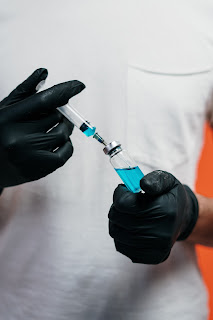In our modern society, plastic is one of the most useful and versatile inventions. Every day, everything we touch, eat, or drink contains some type of plastic. We buy food in plastic bags and containers, and we buy drinks and water in plastic jugs and bottles. Many of us use plastic plates and cups at home and store leftovers in plastic containers. We wrap things in plastic. We use plastic bags for various things. Plastic protects our phones, our books, and important papers Plastic has many useful applications not only for our homes but also for major industries. Plastic has revolutionized our society.
Too much of a good thing actually affects our health. It's almost impossible. Plastic is a polymer, meaning a cluster of identical molecules strung together with weak chemical bonds. This allows some molecules to break off. All our exposure to so much plastic is starting to disrupt our hormones. Many types of plastic have an excessive "xenoestrogen" effect. Once too much enters our bodies, we can begin to see a hormonal imbalance in women and men that looks like an excess of estrogen. This can have many negative effects, particularly on fertility, menstruation, growth and development, and health and well-being. Xenoestrogens disrupt our normal endocrine system and in women have been implicated in breast cancer, and endometriosis, and can even disrupt nerve signaling during fetal growth. In men, xenoestrogens affect testicular function, sperm concentration, growth, and motility. Environmentalists are even seeing a trend in fish because so many xenoestrogens from our sewage are entering streams. Male fish show partial and competitive sex change with female fish. Some parts of the oceans are so overrun with plastic waste that it's pushing animals out of their homes. Marine animals and fish ingest plastic or get stuck in and around their bodies, causing severe disfigurement, inability to feed, and death.
The most important exposure we can control is the use of plastics for food and water. Heating food in plastic containers is one of the worst ways to contaminate our food and bodies. Heating food in plastic allows the molecules to break off more. Frozen vegetable packages that promote putting the package in the microwave to "steam" it in the bag, frozen meals in plastic trays and bags, and putting hot cooked food in a plastic container for storage or covering with plastic wrap are all ways that plastics can affect our health. Drinking water in plastic bottles also allows harmful chemicals such as bisphenol-a, polychlorinated biphenyls, and phthalates to leach into the water as they can leach into food.
what can you do about it? Try to use as little plastic as possible in your everyday life. Drink water from glass or stainless steel bottles. Use your own cloth grocery bags and make bags instead of using plastic ones. Limit or avoid frozen meals and processed foods. Do not microwave or heat anything that is plastic. Try to eat as little canned food as possible. By making these simple changes, you will not only help your health but also the health of the planet.
.jpg)

Comments
Post a Comment